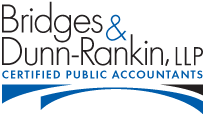Scrutiny of Syndicated Conservation Easements Continues to Increase
By Kenneth H. Bridges, CPA, PFS March 2019
Syndicated conservation easements have long been in the crosshairs of the IRS for examination and challenge. That scrutiny appears to be increasing, and now the US Department of Justice and Congress have gotten in on the act.
On December 23, 2016, the IRS issued Notice 2017-10 identifying syndicated conservation easement deals which provide a 2.5 to 1 or greater write-off as “tax avoidance transactions” and making such “listed transactions” for purposes of the required disclosure rules. The gist of those rules is that if a taxpayer participates in a “listed transaction” they have to disclose such to the IRS on a Form 8886, with potentially draconian penalties for failure to do so.
On December 18, 2018, the US DOJ announced that it was filing suit against a number of (mostly Georgia-based) promoters of syndicated conservation easements seeking, amongst other things, to have them provide to DOJ a list of all persons who had participated in the easement partnerships and to disgorge all gross receipts they have received from the promotion of easements. It is not surprising that the individuals and companies named in the DOJ suit were mostly Georgia-based, as Georgia has long been considered the epicenter of the industry (with Georgia residents believed to have claimed 36% of all easement deductions claimed in the country from 2010 to 2012).
On March 27, 2019, the US Senate Finance Committee announced that it is launching a bipartisan investigation into syndicated conservation easements, and released copies of letters sent to 14 individuals (most of whom are Georgia residents) whom the Committee has identified as major players in the industry, listing the easement partnerships they are believed to have been associated with, and requesting from them any and all information they might have with respect to these partnerships.
On March 28, 2019, the US House of Representatives announced bipartisan legislation to limit conservation easement deductions from partnerships to a maximum of 2.5 times the partner’s basis in the partnership, unless the partnership interest had been held at least 3 years. This proposed legislation would generally be effective for contributions made in years 2016 or later. As is typical with this type of legislation, it indicates that no inference is intended as to the appropriate treatment on contributions made in years before its effective date.
Kenneth H. Bridges, CPA, PFS is a partner with Bridges & Dunn-Rankin, LLP, an Atlanta-based CPA firm.
This article is presented for educational and informational purposes only, and is not intended to constitute legal, tax or accounting advice. The article provides only a very general summary of complex rules. For advice on how these rules may apply to your specific situation, contact a professional tax advisor.
